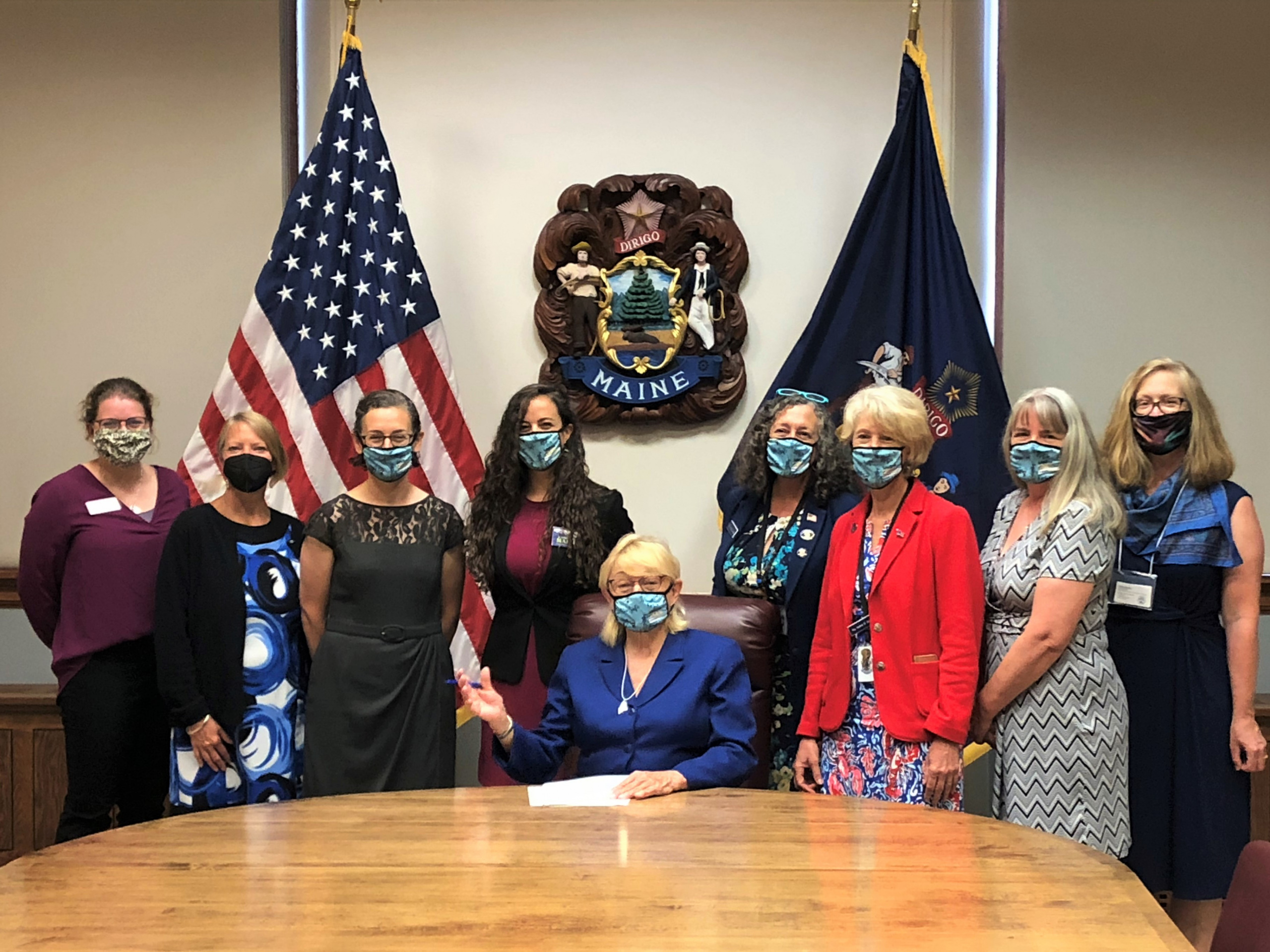Anya Fetcher

Governor Mills, wearing an Environment America Bee-Safe mask, signs LD 155 into law. To her right, Environment Maine state director Anya Fetcher stands with bill sponsors and advocates.
AUGUSTA, Maine — Gov. Janet Mills held a bill-signing ceremony Wednesday for the nation’s strongest statewide restriction on bee-killing pesticides, called neonicotinoids (neonics). LD 155, sponsored by Rep. Nicole Grohoski of Ellsworth, prohibits the use of the most harmful neonic pesticides in residential landscapes. The bill won bipartisan support in the Maine State Legislature, which passed it on June 7.
“The damage inflicted by neonics is far greater than the fleeting value they purport to offer,” said Anya Fetcher, Environment Maine state director. “A prettier lawn or rose garden isn’t worth the destruction of our bee populations, which are vital to our environment and our food systems. Signing this legislation into law is so meaningful because it ups the odds that Maine’s meadows and gardens continue to buzz with the sound of bees.”
Neonics are insecticides that affect the central nervous system and are highly toxic to invertebrates, including bees and butterflies. These toxic chemicals, when absorbed into a plant, contaminate nectar and pollen and remain in soil and groundwater long after they’re applied. A significant body of scientific evidence links neonic use to massive bee population losses, threatening not only honeybee colonies, but also Maine’s 270 species of native bees.
In Maine and throughout the United States, the decline of pollinator populations — which include honeybee and wild bees — also hint at broader environmental challenges. Nearly 90 percent of wild plants and 75 percent of all food crops need animal pollinators to some extent to thrive, and of all pollinators, bees are nature’s best.
Maine now joins several other states that have passed legislation restricting the use of neonics by residents and removing products containing the specified chemicals from store shelves. That said, Maine’s bill does even more. The restrictions include use by licensed applicators such as landscapers, gardeners, and pest control businesses.
“I am thankful to my colleagues in the legislature for supporting this measure,” said Rep. Grohoski. “Maine should be proud that, yet again, we are leaders in protecting and preserving our environment, including our pollinator populations.”
This new law comes following a groundswell of support for pollinators throughout the state. Environment Maine collected more than 10,500 petition signatures calling on state policymakers to support this legislation. In addition, over 60 beekeeper, scientific, public health, farming, and environmental organizations signed a letter in support of the legislation.
“Mainers across the state made a clear-throated statement: There should be a ban on these bee-killing pesticides,” Fetcher said. “We are grateful that the governor clearly took that to heart. We applaud Gov. Mills, as well as Rep. Grohoski, who led the charge in the legislature, and all the cosponsors for doing the work necessary to safeguard Maine’s bees and other pollinators.”
###
Environment Maine works for clean air, clean water, clean energy, wildlife and open spaces, and a livable climate. Our members across the state put grassroots support behind our research and advocacy. Learn more at www.environmentmaine.org.
